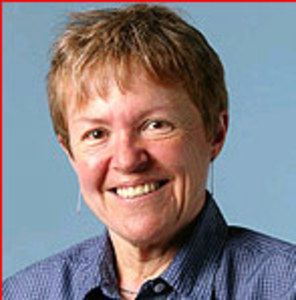Well, a rare outbreak of lucidity in federal politics: Gilles Duceppe, having concluded he could not beat Pauline Marois for leadership of the Parti Quebecois -- not, at least, without further damage to faltering sovereignty forces -- withdrew his candidacy.
He stands to be ridiculed, accused of cowardice, or, at least, a fatal lack of preparation. It appears he had one plan: waltz into the vacuum opened up by Andre Boisclair's forced resignation and humbly accept his new duties as the saviour of sovereignty. When it became obvious that Marois was tempted to run, too, he reportedly tried to bully her out of the idea by announcing his interest quickly and catching her unawares.
It didn't work. Within moments of his announcement on Friday, Marois confirmed her candidacy -- albeit, with a certain terseness. An ugly race appeared inevitable. Marois was described as a two-time loser by Duceppe partisans; the Bloc leader's authoritarian style and lack of familiarity with the provincial scene were cited by Marois' supporters.
Over time, Duceppe may gain more than he loses from his surprising reversal. Whatever the whole story, he can claim to be a man who put Quebec's future ahead of his own ambition. Besides sparing the PQ another divisive clash, his quick retreat will avoid embarrassment for the Bloc Quebecois. The tentative list of candidates to replace Duceppe -- an all-controlling leader who didn't spend much time cultivating successors -- was short and unimpressive. Pierre Paquette? Bernard Bigras? Even in Quebec the names draw a blank. With Michel Gauthier retiring, Suzanne Tremblay long gone, Richard Marceau defeated, and other promising Bloc MPs lost to provincial politics, there are no marquee names, certainly no one with Duceppe's poise and experience.
As to what this means for national unity, it would be wise to avoid smugness. Marois, in her press conference yesterday, also displayed common sense. She wants the PQ to stop obsessing over the timing and tactics for another referendum and start engaging Quebecers on what kind of country they want. This can be portrayed as retreat, or realism; either way, the alternative was political suicide.
It has been clear for some years, in recurring polls, that there is no more appetite for another referendum in Quebec than in the rest of the country. That doesn't mean the dream of independence is dead; it will never die in the hearts of many Quebecers.
What shifts, however, is the debate over what "independence" might look like. The flavour-of-the-moment is Mario Dumont's vision of "autonomy." His Action democratique du Quebec wants a new constitution for "the autonomous state of Quebec", a relationship with Canada as a "privileged partner" -- with whom Quebec would have as little to do as possible. Dumont's plan even includes disbanding the Council of the Federation, a Quebec innovation that has proved a useful forum for premiers to plot a common stand against "Ottawa." (They don't have that much in common, as it turns out.)
If Marois wins -- and she deserves too, given 30 years competent service to her party -- her ability to compromise and listen may serve her well. The PQ will have to decide whether to campaign stridently against "autonomy, portraying it as timid and fraudulent, or to work with Dumont to pressure Jean Charest's minority Liberal government. If the PQ chooses the second course, the demands for more power, more concessions for Quebec will only intensify.
It is hard to say where, and if, Stephen Harper will draw the line. A decentralist himself, he has offered outright praise for Quebec nationalism and for the idea of "autonomy." He is cultivating the same voters who support the ADQ, trying to rebuild Brian Mulroney's coalition with soft nationalists and isolate the federal Liberals -- and, by extension, his former best friend Jean Charest.
Duceppe's reversal may be a minor disappointment for Harper -- he has been flattering the Bloc leader of late, no doubt hoping Duceppe's vanity would lead him to Quebec City. No such luck. Duceppe will not be able to revive his party on his own, but he remains Quebec's most forceful advocate in Ottawa -- and a dangerous opponent for any federalist.
As for Quebec, it has been missing a centre-left party since before Boisclair took the helm of the PQ. Marois promises to return the party to its social democratic roots. This suggests a showdown between the centre-right, suburban and rural ADQists and a reinvigorated PQ for francophone voters. Where does it leave Charest, Harper, or Stephane Dion? Duceppe's dizzying turns should be a warning against rash predictions.
Susan Riley writes Monday, Wednesday
and Friday. Email sriley@thecitizen.canwest.com




















Laissez un commentaire Votre adresse courriel ne sera pas publiée.
Veuillez vous connecter afin de laisser un commentaire.
Aucun commentaire trouvé